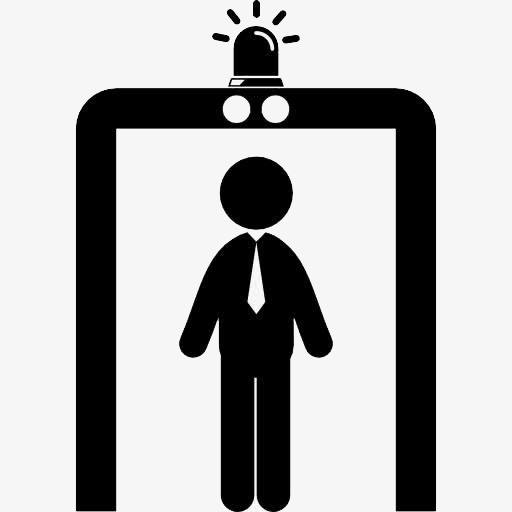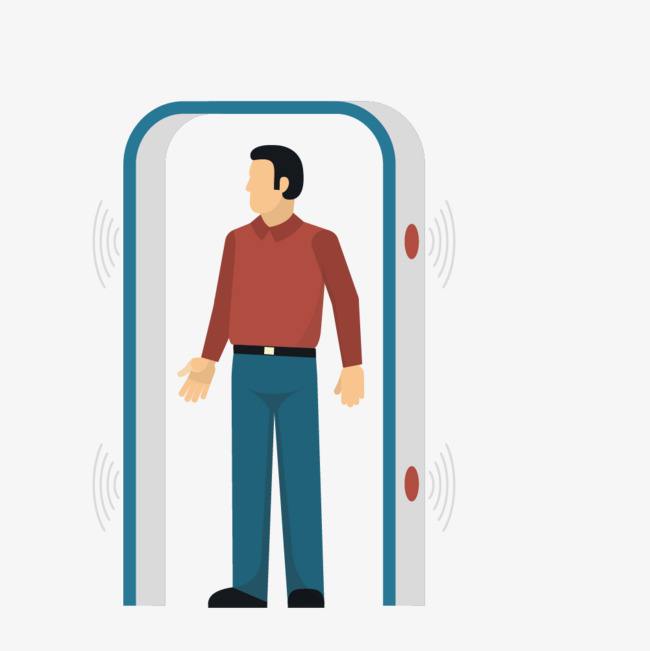机场人体扫描仪的辐射有危险吗?
机场人体扫描仪的辐射有危险吗?
What do granite countertops, bananas and airports have in common?
花岗岩台面、香蕉和机场有什么共同点?
They're all emitting low-level radiation — constantly. Yet, according to toxicologists, people aren't coming into their offices with concerns about their kitchen renovations. Instead, just one of these sources is a cause of disproportionate anxiety: the security scanners in airports.
共同点就是它们都在不断地发出低水平的辐射。然而,根据毒理学家的说法,人们不会担心厨房装修,却往往对另一件事非常担忧:机场的安全扫描仪。

Patient concerns are often based on the warnings health care providers have issued regarding medical X-rays. The Food and Drug Administration cautions cautions patients to undergo X-ray imaging only when strictly necessary. But should people also be concerned about the security scanners at airports?
人们的担忧通常是基于医疗保健提供者发布的关于医用x射线的警告。美国食品药品监督管理局警告称,只有在严格必要的时候,患者才需要接受x射线成像。但是人们也应该担心机场的安检扫描仪吗?
Luckily for health-conscious frequent fliers, there's no need to worry, said Dr. Lewis Nelson, professor and chair of emergency medicine at Rutgers New Jersey Medical School. Radiation is a general term for different kinds of moving electromagnetic energy: ionizing radiation (what X-ray machines emit) and nonionizing radiation (which includes radio and magnetic waves). The key difference between ionizing and non-ionizing radiation is the level of energy they transmit. Ionizing radiation has enough energy to knock electrons away from atoms, creating free radicals; these chemically reactive particles can damage DNA and increase people's risk of cancer.
新泽西州罗格斯医学院(Rutgers New Jersey Medical School)急诊医学教授兼主席刘易斯·纳尔逊(Lewis Nelson)博士说,对于注重健康的常旅客来说,幸运的是,他们没有必要担心。辐射是各种移动电磁能量的总称:电离辐射(x射线机发射的)和非电离辐射(包括无线电波和电磁波)。电离辐射和非电离辐射之间的关键区别在于它们传输的能量水平。电离辐射有足够的能量使电子远离原子,产生自由基;这些化学反应性粒子会破坏DNA,增加人们患癌症的风险。
But ionizing radiation has a real impact on our health only when received at high doses. And in airport X-ray machines, even though about half of the scanners emit ionizing radiation, the dose just isn't high enough to do bodily harm, Nelson said. (Roughly half of scanners use millimeter waves, a form of non-ionizing radiation.)
但是电离辐射只有在高剂量时才会对我们的健康产生真正的影响。尼尔森说,在机场的x光机中,尽管大约一半的扫描仪会发出电离辐射,但辐射剂量还不足以对人体造成伤害。(大约有一半的扫描仪使用毫米波,这是一种非电离辐射。)
"It's so tiny that it's inconsequential," he told Live Science.
他在接受《生活科学》(Live Science)采访时表示:“它是如此之小,以至于可以忽略不计。”
While patients may be right to be concerned about the number of medical X-rays they receive, the amount of radiation delivered by an airport X-ray is tiny in comparison. A chest X-ray exposes patients to roughly 1,000 times the radiation of an airport scanner. The Health Physics Society estimates that airport X-ray scanners deliver 0.1 microsieverts of radiation per scan. In comparison, a typical chest X-ray delivers 100 microsieverts of radiation, according to a 2008 study published in the journal Radiology.
虽然人们对他们所接受的医用x光的数量感到担忧可能是对的,但相比之下,机场x光所释放的辐射量是很小的。胸部x光片使病人暴露在机场扫描仪辐射的1000倍左右。健康物理学会(Health Physics Society)估计,机场的x射线扫描仪每次扫描的辐射量为0.1微西弗。相比之下,根据2008年发表在《放射学》(Radiology)杂志上的一项研究,典型的胸透会释放100微西弗的辐射。
And travelers are exposed to far more radiation on the flight itself, Nelson said. Every minute on a plane delivers roughly the same dose of radiation as one airport X-ray scan.
尼尔森说,乘客在飞机上受到的辐射量要大得多。飞机上每分钟的辐射剂量与机场一次x光扫描大致相同。
“It’s ironic that peoeple afraid of radiation exposure in screening don’t have any qualms about getting on the airplane,” Nelson said.
尼尔森说:“令人啼笑皆非的是,人们害怕在安检中暴露在辐射下,却对上飞机没有任何顾虑。”
These scanners emit such a tiny amount of radiation that even if you flew every day for a year, you'd still receive only a fraction of the ionizingradiation you absorb from food, based on dose estimates from NASA.
根据美国国家航空航天局(NASA)的剂量估计,这些扫描仪发出的辐射量如此之小,即使一年中你每天都在飞行,也只会受到电离辐射的一小部分。

Most food contains small amounts of the radioactive molecules carbon-14 and potassium-40, according to NASA. In fact, many of the objects and substances we encounter daily emit radiation; the soil, cement sidewalks and buildings, and even the air we breathe are all slightly radioactive.
据美国宇航局称,大多数食物含有少量的放射性分子碳-14和钾-40。事实上,我们每天遇到的许多物体和物质都会放射出辐射;土壤、水泥人行道和建筑物,甚至我们呼吸的空气都有轻微的放射性。
Compared to all that radiation, an X-ray scanner emits an insignificant amount, Nelson said. That holds true even for people more vulnerable to radiation exposure, such as pregnant women and babies, who receive the same amount of background radiation daily as anyone else.
尼尔森说,与所有这些辐射相比,x射线扫描仪的辐射量微不足道。即使对更容易受到辐射的人来说也是如此,例如孕妇和婴儿,他们每天接受的本底辐射量与其他人相同。
"The dose makes the poison," Nelson said, "Everything is toxic if you have enough of a dose. The corollary to that is everything's nontoxic if you have a low enough dose."
尼尔森说:“剂量会产生毒素,如果剂量足够大,一切都是有毒的。由此得出的结论是,如果剂量足够低,所有物质都是无毒的。”
And in this case, Nelson added, airport X-rays definitively fall on the nontoxic side of the spectrum.
尼尔森补充说,在这种情况下,机场的x射线绝对属于光谱的无毒范围。
- 频道推荐
- |
- 全站推荐
- 推荐下载
- 网站推荐


















